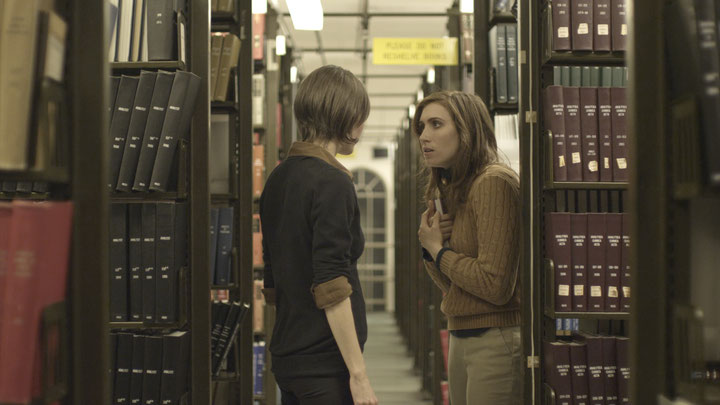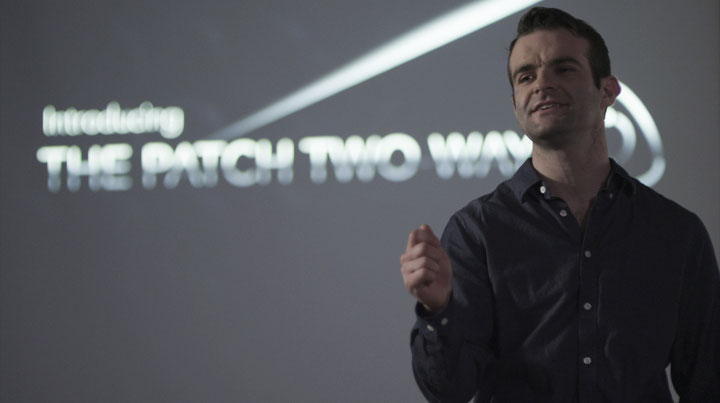In recent years, contradictions inherent in capital accumulation have forced an economic crisis and created an impasse in which extremes of economic inequality are intensifying. Rather than addressing these imbalances, most existing governmental structures seem merely to sustain the social order while assisting this process of uneven distribution. New social movements that include wide swathes of the population have begun to ignite across the globe, if only momentarily, in reaction to this situation.
Having worked for the past six years with the subject of what a massive economic crisis such as the current one would do to the political landscape, my focus has been on representing systemic economic shifts while contrasting them with their affective impact on people. I have concentrated my attention on the forces that shape political life beyond the representational politics of parties and voting in other words, the intersection of biopolitics and capital. Throughout my practice certain questions recur: What are the potentials for collective action in the present and how must it be reconceived in an age of ever intensifying economic determinism and biopolitical control? How can struggle toward collective goals also take the full range of each individualʼs needs and desires into account? Can the individual subject be reconceived to incorporate the collective dimension that is always already contained within it? Can recognition of the importance of affect and emotions in politics help bring about new social scenarios? And, on the other hand, how do non-rational aspects of the subject, such as affect and emotion, become embroiled in processes of capital accumulation? Ultimately, I intend that all these inquiries answer a larger question: What can help us change the current political and economic landscape and enable us to overcome capitalism in favour of a new system in which accumulation no longer determines human interaction?
Obviously, some of these questions are monumentally complex; for me, a useful means of approaching them is to think through fictions. Philosopher Denis Diderot used imagistic moments in his writing (which he called hieroglyphs) in order to activate the senses and affects as well as the mind, and I work similarly in that I write theory that is also fiction and fictions that are also theories. Today, the fiction that I deploy is The Common Sense, a TV-series-like video project currently in development. Its plot is a thought-experiment bringing the basic elements of these questions into play and figuring out their ramifications. The plot, resembling a science fiction narrative, goes something like this: The story is situated in a fictitious “now” after a worldwide revolution against economic inequality has erupted. What has partly catalyzed these events is the invention of a new technology that allows a person to feel another’s embodied experience of physical sensations and emotions. Conceptions of empathy and political solidarity with others are suddenly replaced with concrete and visceral sensations of other people’s situation, which brings about strong needs for social change across the world. The relationship between individual and collective is profoundly transformed as the physical conditions of individual existence that previously underpinned these concepts is technologically remade. But this does not happen overnight. In the initial years of the technology’s release, there are just as many ways that the technology is useful to the needs of capital as there are ways that it creates new means of its overcoming. Eventually, as over time the technology has deeper and more wide ranging effects, emancipation from economic bondage becomes the order of the day for many, but the problem is less figuring out what needs to be destroyed than what to build in its place. Moreover, this technological development that allows people to feel each otherʼs feelings is not unambiguously good, nor does it by any means make political and social conflict disappear. While it creates possibilities for new modes of existence and collective social formations, it also leads to new contradictions and conflicts.
In the project, this technological device allows people to perceive their needs, desires, and feelings no longer only individually, but to also feel those of others as fully as their own and, as a result, the concept of individual interests is thoroughly reconceived. Capitalism currently derives validity through its role in mediating all individual interests into coordinated relations of exchange, thereby sustaining the complex concatenation of value relations that have come to support all peopleʼs survival. However, my fiction posits that if one can feel anotherʼs needs as intensely as oneʼs own, individual needs become collective in a profound and ontological sense, and the necessity for a system that mediates the relation of an individualʼs needs to the totality of everyone elseʼs dissipates. I focus my story of revolutionary upheaval on emotions and affects because these seem to be at once overlooked and misunderstood, but are also incredibly important. Crises of the capitalist system hit us in the belly, in the nervous system, they mobilize our desires and fears, the place where the bodyʼs physical needs and drives meet thought.1
In a capitalist economy, people satisfy their needs (for nourishment, shelter, etc.) through the use values of commodities; yet at the same time the availability of each of these commodities is determined by their exchange value, which is external to use and fluctuates according to the movements of supply and demand, determining its market price. However, in an economic crisis like the one currently unfolding, people become acutely aware of how these exchange fluctuations control the most basic conditions of their physical existence. As such, the systemic crises of capital directly connect, through an umbilical-like tie, to immersion within physical, affective experience.
The approach I took in my serial video narrative Popular Unrest (2010) was to look at how emotions and affects are instrumentalized in capital accumulation and biopolitical control. Occurring in recent years, the anti¬government-cut protests and mass riots in the UK, anti-austerity protests in Greece, the Los Indignados movement in Spain, the Arab Spring uprisings and protests across the Middle East and North Africa, as well as the Occupy movement in North America, all share the quality of sudden massive upsurges of frustration, anger and desire, of collective grassroots actions with people demanding change without being led or co-opted by existing organizations. Los Indignados and the Occupy movement especially seem to be riding a wave of feelings and ideas that are by no means uniform, but nonetheless manage to cohere sufficiently to give rise to mass action. At this moment, when multiple, self-organized peopleʼs movements are taking on an active and important role in public life, it is significant to contemplate what bonds them together in the absence of strong leadership or explicit, shared principles and values.
[…] As Marx suggests, capitalism may not be the end condition of life for humans but a phase that sets the ground for a much better organization of human energy. What many people lack today is an idea of what that „something better“ could be, having lost the belief that an alternative system to capitalism –such as socialism or communism2 – is workable or desirable, and are haunted instead by the indelible images of failed revolutions. This might be why movements such as Occupy Wall Street do not project a picture of the changes they want to see but rather the affective intensities of needing things to change. It is therefore important at this moment to allow for political thinking that is speculative and even far-fetched. Here is one possible conclusion to the storyline of The Common Sense:
We find ourselves in a future moment, when the full implications of the new, affect-connecting
technology have been realized. A new collective form of self-government has evolved around the technology whereby political decision-making is based on each person’s needs, but always as parts within the whole of the collective, as the technology mingles all sensory and emotional feeds, giving a sense of the collective needs and desires of every person around the world.
If, as in my video fiction, individual needs were overcome entirely, it would no longer be necessary to for capital to be the means of mediating these needs and putting them into connection. But as this technology does not exist (and many would be incredibly thankful it does not), and individual consciousness is a condition that must be done justice and grappled with, I am wondering whether some possible form of self-organized mediation of individual needs that is not in itself a form of exchange or population management could be part of a discussion of future communization. Toward this aim, I would like to briefly consider how capitalism itself, a system that is really just people plus money, is able to evolve a self-propagating, self-sustaining complexity that acquires collective behaviour, decision-making ability, and affects. The ailing system of capitalism has dimensions of self-organization but these are always tempered by the control exerted through the ostensibly fair but entirely exploitative and inequitable exchange relations of labour in capital accumulation. While it puts the unfathomable complexity of all individual human needs and desires into abstract relation, it does so by aggregating wealth in the hands of an ever more exclusive few while broadening poverty and misery. Are there ways of retaining this ability to construct relations and logics in practice while eliminating value and the value measure? If so, this could be very useful for a society that is collectively self¬-organized. But this would be contingent on a host of questions: Who would be building this society? Would certain people have the blueprint and not others? If we think of human action today as linked by, but not by any means reducible to, the totality of capital, the question, theoretically speaking, is how to abolish value while preserving the virtual potential inherent to capital – that of the abstract connection of human activity. Collective action needs then to be reconceived in terms of its own total collective system logic and the fight against capitalism must be understood as an assault on the system as a totality.
Published in Intangible Economies (Antonia Hirsch ed., Fillip Editions, 2012)
1 See my work Self-Capital (2009) regarding my approach to translating these conditions to a video work. Find Self-Capital online in three parts via my YouTube channel: http://www.youtube.com/user/mgilligan7/videos.
2 I myself subscribe to the notion that communism as first envisioned by Karl Marx was never realized in any of the real world social systems that came about in the last century.


